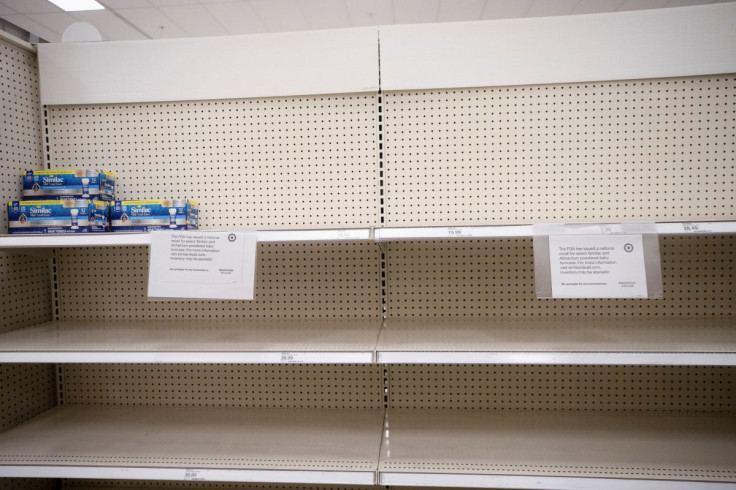FDA Says U.S. Efforts Should Ease Baby Formula Crisis In Weeks

U.S. government efforts to help companies ramp up production and increase imports from abroad should dramatically ease the baby formula supply shortage within weeks, the head of the Food and Drug Administration said on Friday.
Commissioner Dr. Robert Califf said the FDA will announce plans next week detailing how manufacturers and suppliers abroad will be able to import their products into the United States, as well as creating flexibility for domestic companies.
The FDA is aiming for a streamlined process that will get more products on U.S. shelves while meeting safety, quality and labeling standards, he said. The $4 billion U.S. baby formula market is dominated by domestic producers, with imports subject to high tariffs.
"We believe these and other ongoing efforts will help dramatically improve the supply in the U.S. in a matter of weeks," Califf said on Twitter. "Our data indicates that in stock rates in retail stores are stabilizing but we continue to work around the clock to further increase availability."
Abbott Laboratories in February recalled some baby formulas, including certain Similac products, made at the plant in Sturgis, Michigan, after complaints about bacterial infections in infants who had consumed the products.
Formula shortages have been compounded by supply-chain snags and historic inflation, leaving about 40% of baby formula products out of stock nationwide, according to data firm Datasembly.
Abbott said on Friday it has shipped millions of cans of infant formula powder into the United States from its Ireland facility amid a nationwide acute shortage.
The Biden administration has come under increasing pressure to address the problem.
President Joe Biden met on Thursday with executives from infant formula manufacturers and retailers, pressing them to do everything possible to get families access.
The retailers told Biden their top ask is more flexibility on the types of formula they can sell, while consumers need more flexibility on the types they can buy, particularly through the WIC program for low-income families, said Brian Deese, director of the White House National Economic Council.
The nutrition program for Women, Infants and Children is a federal assistance scheme administered by U.S. states.
Abbott said in a blog it has been focusing on infant formula production from the Ireland facility to serve consumers that use the WIC program for low-income families.
About half of infant formula nationwide is purchased by participants using WIC benefits, the White House said, and rules set by individual states have a big effect on the availability and distribution of infant formula.
The U.S. House Oversight Committee said on Friday it plans to investigate the four largest manufacturers of baby formula and seek answers on how to ramp up production amid a nationwide shortage.
The committee sent letters seeking information to Abbott Nutrition, Mead Johnson Nutrition, Nestle USA and Perrigo, ABC News reported.
Less than half of babies born in the United States were exclusively breast-fed through their first three months, according to the Centers for Disease Control and Prevention 2020 Breastfeeding Report Card.
© Copyright Thomson Reuters {{Year}}. All rights reserved.





















